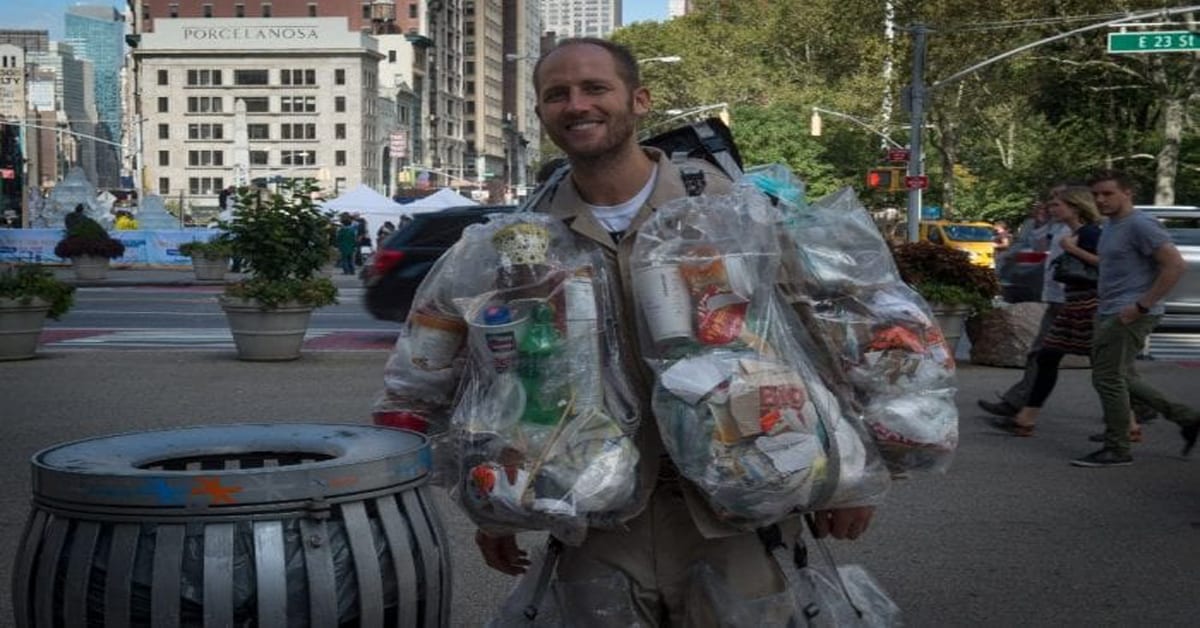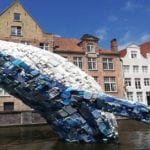“He that plants tree loves others besides himself “, says Thomas Fuller.
What Fuller said is actually a manifestation of male involvement in environmental protection and conservation. Although, majority of studies show women are more likely to adapt sustainable living than men, and women have more key players in environmental protection, men are still considered vigorous actors. There are various factors to that these studies show such as gender stereotyping, race, income and household members which play huge impact on men’s participation in this aspect.

But what good about these studies is that men’s involvement in environmental protection, sustainable living, and wasteless lifestyle is thriving. And the reality that men can be stewards of change in advancing progressive policies that cater the environment is quite evident. There have been male changemakers and policy-movers for environmental preservation.
Men’s Perspective on Waste Management
Men and women, though equal, have differences in their views on things such as waste management. Men and women look at waste based on who they are and their experiences. For some men, recycling food scraps to create compost may be seen as collecting dirt while other waste like metal scrap seen as motorcycle spare parts or construction materials. Men also have a set different environmental standard such as men prefer one central dustbin. Another study shows that men tend to pay more on waste collection and prefer private garbage collector (Grieser and Rawling, 1996).
Men’s behavior on waste management showing care for environment is also evident. For instance, the Urban Waste Expertise Programme (UWEP), which aims to document existing waste management practices of people, community, organizations, and informal enterprises in low income neighborhood and to support new initiatives in the mentioned field, observed that in Gouda, Netherlands, micro enterprises in the waste sector are more often run and initiated by men.
Also, a study explained that in the Netherlands, a household’s recycling efforts are significantly higher for multi-adult male than of its multi-adult female households, women think of waste less whereas men respond on the belief that they can actually contribute for the betterment of environment. To add to that, men are concerned over issues like water shortage so men have slightly more participation to take action in marine litter removal.
Men are also active supporters of the zero waste lifestyle. Latest trends and fashion for men are not regularly changing. So probably, most of them have timeless wardrobe or a vintage one. Men spend less on cosmetics. Men do not even to worry about the amount of sanitary napkins they can trash off since they do not have menstruation period.
Some men are actually shifting to use organic and biodegradable products such as bamboo toothbrushes, bulk products which contain safe, organic, and non-toxic ingredients, and DIY products.
Also, men look for affordable and accessible products and services that cater their needs. Oftentimes, because waste management and environmental protection are mostly associated with women, zero waste products for men are scarce. For example, most of the shampoo and soap bars are fruit or floral scented. Men looking for more masculine scents are actually facing more dilemma than most women when to their personal care.
Men who are into the zero waste lifestyle are viewed more responsible than their counterparts who do not practice it. They promote equality among genders since most of the time household chores are being done by women, thus, this will save more time for women who are tending the cleaning.
For instance, Colin Beavan’s 2009 book No Impact Man, stated that since he was forced to bake bread every few days, in order to avoid packaged and preserved foods because his wife also has a busy job, he had come to spend more time with his kids.
These things that men practices to care for the environment are affirmations to the report published on the Scientific American that the belief that men do not care for sustainability is not true. Men can be part of this crucial role in environmental preservation if they dare to show society that it is not less manly to care for the environment. Rather, male changemakers for sustainable living are one of the best men in history.
The Need for Stronger Policies for Environmental Protections
Most of us love the esthetically perfect sceneries, fresh air, healthy organic food and a place to live that offers comfort and safety. Ideally, a healthy environment can offer these qualities. In fact, a healthy environment has a lot to offer, and these qualities are just some of them. Healthy environment can provide the essential needs for human survival in many social aspects such economics and health. This is evident in our day to day lives because our food, clothing, medicine, and many more came from our environment.
However, the lack for the environmental care has resulted to environmental degradation. The environmental degradation caused by air pollution and climate change which overloading oceans water and atmosphere with carbon; solid waste mismanagement clogging rivers and marine animals; deforestation destroying natural habitats of diverse species giving way to monoculture agriculture and land conversion; and light pollution causing harmful effects to marine life hampers the ability of our environment to provide these qualities and essential needs.
A concrete example of this environmental degradation is the Great Pacific Garbage Patch which around 180 times layer patch higher than that of marine life, where 84 % of plastic samples contained at least one chemical pollutant which the micro-plastics are becoming the primary food source of the marine life.
Thus, the need for policies in protecting the environment arises. The policies or laws encompassing the aspects of providing protection to environment are centered on environmental legal principles focusing on the management of natural resources such assessment on environmental impacts and waste management segregation and practices among others.
In this regard, since men have different view from women when it comes to environmental policy, standard and lifestyle, it is highly recommended to note these certain differences without bias. Policies protecting the environment must be integrative for both sexes and genders. The messaging that men can take care and can have critical role in environmental protection must be amplified.
In fact, men have greater access to institutions than women because men are the majority of leaders in corporate world, in some communities and even as small as the household. Men’s influence is great in coming up for stronger policies for environmental protection and initiatives. Since time immemorial, there has been male changemakers on many social causes, not least of which is environmental protection.
Male Changemakers and Policy Makers for the Environment
Since more men are heads of institutions and have more access to leading posts, the visibility of men to take the lead manifested around the globe. There are a lot of male changemakers – advocates, leaders, activists and policy makers – who push for a sustainable living community and for the advancement of environmental protection.
Get inspired by the some of the male changemakers for the environment. From America and beyond, there are men who continuously create positive changes for the betterment of the environment.
American Male Changemakers
Gaylord Nelson

One of the first changemakers in the history of environmental advocacy, Gaylord Nelson is a politician and environmentalist. His name is associated with Earth Day. Nelson began his career as a politician and environmental activist after returning from World War II. He had dedicated the rest of his life for environmental cause. When he was a governor of Wisconsin, he came up with a program called, Outdoor Recreation Acquisition Program that saved about one million acres of parkland. He helped in the passing of the Wilderness Act, the Clean Air Act, the Clean Water Act, and other landmark environmental legislation. He is best known as the founder of Earth Day, which earned an international celebration in environmental conservation.
Ibrahim Abdul-Matin

Ibrahim Abdul-Matin is a former adviser to Michael Bloomberg, specializing in the field of environmental sustainability. He was inspired by his father’s statement that the Earth is a Mosque and that he can pray anywhere. He believes that Earth is sacred and it is his duty to protect the planet, to be a steward of the Earth. Abdul-Matin is the author of the book: Green Deen: What Islam Teaches About Protecting The Planet.
Rob Greenfield

Rob Greenfield is a zero waster. He mostly documented his zero waste lifestyle through his YouTube channel and blog. He has activities like biking across US, planting organic food, eating organic food from his garden, and building a 50-square-foot tiny house in Orlando while generating only 30 pounds of construction waste. He is also founded the Greenfield Group which aims to help businesses in environmental friendly manner and it offering hotel marketing with carbon negative foot print and numerous environmental options.
Quentin James

Quentin James became an intern in a research focusing on Detroit’s history as a fresh food desert. The project introduced him to environmental justice and the need to create a new profile of what an environmental activist is like. He once became a National Director of the Sierra Club’s Sierra Student Coalition, the US largest youth environmental organization. James directed the organization to train, empower, and organize youth to run effective campaigns which resulted to developed leaders for the environmental movement and tangible environmental victories and.
Greg Nickels
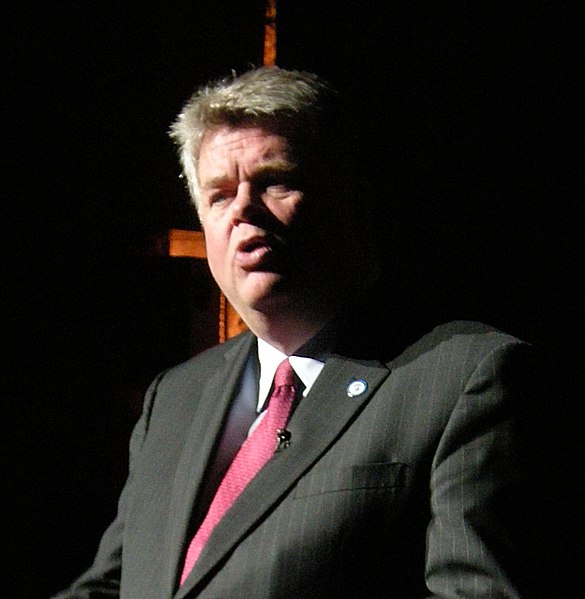
Greg Nickels is the initiator of the U.S. Mayors Climate Protection Agreement, where a group of 496 municipal leaders have pledged their cities to meet the Kyoto Protocol target of a 7 percent reduction in greenhouse-gas emissions from 1990 levels by 2012. The participating mayors were representation of more than 64 million Americans urged climate action on the national level. The local goal of Nickel included of increasing the number of trees in the Emerald City and improving bike and public-transportation option in Seattle.
Van Jones
Van Jones is a CNN political commentator that can mostly see appearing across the network’s programming and special political coverage. He is a lawyer and the author of New York Times best-selling books, The Green Collar Economy (2008) and Rebuild the Dream (2012). He also became a White House policy advisor and the primary advocate of Green Jobs Act.
He founded and led not-for-profit organizations engaged environmental justice including such as Rebuild the Dream, promoting innovative policy solutions for the U.S. economy; and Green for All which is committed in creating jobs training in the green sector with the goal to help lift people out of poverty. He is also a senior fellow with the Center for American Progress and focuses on policy matters related to green jobs and how places are implementing job-creating climate solutions. He has numerous awards one of these is the World Economic Forum’s “Young Global Leader” designation.
European Environmentalists
Michel Barnier
Michel Barnier was born in 1951. He joined the French Gaullist party, the RPR, at fifteen. He graduated from the École Supérieure de Commerce in Paris. He first won public recognition in France for coordinating preparations for the 1992 Winter Olympics in the Alpine town of Albertville. He served as a minister for the environment, as well as agriculture and food in France. He worked twice as European Commissioner. He became the chief negotiator for the European Union. He was also a recipient of European Leadership Award.
Stavros Dimas
Stavros Dimas became the European commissioner for the environment. He initiated over the adoption of REACH, the European Union’s ground breaking chemical regulation system. Despite political pressure over environmental legislation, he pushed on. He forged plans to cut airline emissions and push new clean-air rules.
He is the author of the bestsellers Earth in the Balance and An Inconvenient Truth and is the subject of an Oscar-winning documentary. Al Gore is the co-winner, with the Intergovernmental Panel on Climate Change, of the 2007 Nobel Peace Prize for “informing the world of the dangers posed by climate change”.
Ken Livingstone
Ken Livingstone is the former left-wing London mayor known as “Red Ken”. He is known for his traffic scheme management he taxed on vehicles entering the city center during normal weekday work hours, cracking down especially hard on SUV drivers. Under his Climate Change Action Plan, London will get 25 percent of its power from more-efficient, local sources and reduce carbon emissions 60 percent within 20 years; in addition, he promised about $90 million in the 2008 budget for programs to fight climate change. He has a political outlook and commitment to causes such as nuclear disarmament and Palestinian solidarity.
Yannick Jadot
Yannick Jadot is a French environmentalist and Member of the European Parliament elected in the 2009 European election for the West France constituency. He is an economist and author. He was a former manager at Greenpeace France before joining member the European Parliament. During his term as manager for Greenpeace France, he co-ordinated Greenpeace actions in France between 2002 and 2008 but also headed the ‘Alliance pour la planète and was a key player in the 2008 Grenelle Environnemental Accord.
Gitanas Nausėda
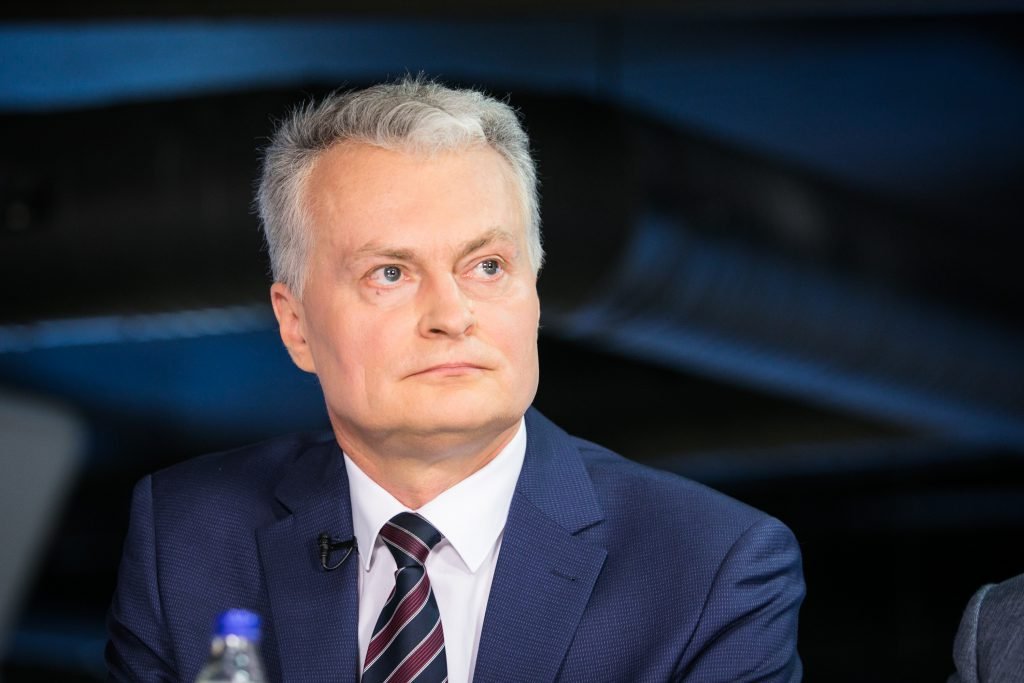
Gitanas Nausėda is the President of Lithuania. He supported the 2050 target, it is the European Union aims to be climate-neutral by 2050 – an economy with net-zero greenhouse gas emissions. He believes in the greatest potential for economic growth lies in adopting green technologies and promoting digitization in both private and public sectors. He affirmed that the processes must be geared towards promoting the well-being of people and based on innovation and efficient energy production.
He also supported the Green Deal proposed by the European Commission, which, he said, would require the mobilization of European countries, changes in their legal frameworks and appropriate financial resources. In his speech in one of the meeting with other EU’s leaders, he reminded that the Green Deal in Europe will encourage the creation and development of environmentally friendly business, innovation, production, and health care.
Jorgo Riss

Jorgo Riss was born and raised in Germany. He is the European Unit Director of Greenpeace. He is a political scientist who worked as a journalist and academic before joining Greenpeace European Unit. He has directed Greenpeace European Unit since 2003. The European Unit is part of the international Greenpeace network, active in over 40 countries worldwide and with around three million supporters.
Its objectives are to monitor and analyse the work of the EU institutions, expose deficient EU policies and laws, and challenge EU decision-makers to implement progressive solutions in such areas as climate change, energy, forests, oceans, chemicals and sustainable agriculture. He represents European environmental NGOs (‘the Green 10’) in the EU Civil Society Contact Group, and is co-founder and member of the steering committee of the Alliance for Lobbying Transparency and Ethics Regulation in the EU (ALTER-EU), a coalition of over 140 civil society groups, trade unions, academics and public affairs firms campaigning for more transparency in EU policy-making.
Asian Environmentalist Leaders
Illac Diaz
Illac Diaz is a Filipino entrepreneur and an advocate of sustainability. Diaz discovered that he could actually bring light into the homes of the Philippines’ poorest with just a disposable plastic bottle and a few basic household items. Diaz’s Liter of Light initiative is providing low-cost sustainable lighting solutions to more than 353,000 homes in 15 countries.
His initiative sent him into the Guinness World Records for the category of teaching the world’s largest class on sustainability which consist of 280 students. His successful social enterprise, the My Shelter Foundation, won the Zayed Future Energy Prize in 2015. He always aims to lift Filipinos out of poverty through sustainable grassroots businesses.
Kyaw Ye Htet
Kyaw Ye Htet is a young environmentalist in Myanmar. He co-founded Strike for Climate Change Myanmar. He helped in organizing Fridays for future Movement in Myanmar aims to bring awareness on environmental crisis which is the climate change. His movements are encouraging local people in Myanmar especially the youth to join the cause for environmental protection. He believes that if we cannot end the climate crisis, it will end us.
Fachruddin Majeri Mangunjaya

Fachruddin Majeri Mangunjaya is an Indonesian eco-activist in the Muslim world. He extended help in training more than 1000 clerics in delivering sermons that connect science and religion with environmental content. He authored various books and holds various prominent position for the advancement of environmental protection and conservation.
In 2015, he became part of the team that drafts the Islamic Declaration for Global Climate Change in Istanbul, Turkey. His academic and experimental work runs against a backdrop of a larger cultural shift both in Indonesia and countries around the world. His divine inspirations are the Qur’anic verses, one of these is: “And there is no creature on the Earth or bird that flies with wings except they are umma [the community of believer] like you 96:38)
Sainath Manikandan
Sainath Manikandan is an Indian student in Abu Dhabi. He uses innovative technology to address environmental issue. He is a young environmentalist raising awareness within his community of how individual action can drive far-reaching can result positive changes for the environment. He actually believes that technological innovation has greater potential in addressing environmental crisis. He also argued that people could shift to sustainable and green practices. He created two prototypes of robots based on the principles of two UN Sustainable Development Goals.
At such a young age, he is the ambassador of Drop It Youth, Tunza Eco Generation, and an active member of the Emirates Environmental Group. When he was asked about the role of children in creating a positive impact on the environment in one of the interview in the United Arab Emirates, he answered: “the backbone of a nation is its youth. We have the power to bring about a change in our schools, homes and environment, and together we can create a wave of change.”
Latin American Environmental Activists
Alberto Curamil
Alberto Curamil is an awardee of Goldman Environment Prize. He is known for resisting thehydro projects that may cause environmental problems in Chile. He organized a movement to halt the projects. He educated and raised awareness of the people on the environmental impacts of those hydro projects at traditional Mapuche gatherings.
He tapped non-Mapuche community members, environmental organizations and other individuals to join the campaign. They utilized non-violent resistant such as street protest. The campaign was successful in stopping the construct of hydro projects He is a well-respected leader and spokesperson for the Alianza Territorial Mapuche and has dedicated his work to the protection of the region’s rivers and forests.
Jaime Lagunez

Jaime Lagunez is a Mexican scientist. He was awarded as “Leader of Excellence in Health” in 2017. He organized a project in which the profit would go to the back to the citizens of participating countries. He is responsible for the Change.Org petition: “United Nations, we live climate collapse have the United Nations declare state of planetary emergency”. He is also a member of the National Prevention Science Coalition which using evidence based scientific criteria to change social policy and participated as founder.
Chico Mendes
Chico Mendes is best known for his efforts at saving the rainforests of Brazil from logging and ranching activities. He came from a family of rubber harvesters who supplemented their income by sustainably gathering nuts and other rainforest products. During his time, the devastation of the Amazon rainforest was alarming and therefore a threat to their livelihood and the environment.
Thus, he and his colleagues organized a movement. Unfortunately, most of his comrades were assassinated. But this did not stop him. He helped to ignite international support for its preservation. His activities, however, drew the ire of powerful ranching and timber interests —he was murdered in 1988 by cattle ranchers at age of 44 leaving his wife and two children. His life story was told in the movie “The Burning Season”.
Bruno Rodriguez
Bruno Rodriguez is the head of the Fridays For Future Movement in Argentina. He is studying political science in University of Buenos Aires. He was invited to a climate summit at the United Nations. He is also the founder of the Youth for Climate Change Argentina, a movement that aims to pit environmental actions at the center of the global public agenda. In his speech at the UN climate summit, he urged that his generation must not wait passively and the time has for them to become leaders.
Rodrigo Tot
Rodrigo Tot is an indigenous Q’eqchi leader in Guatemala. He is the recipient of the 2017 Goldman Environmental Award for leading his community to a landmark court decision that required the Guatemalan government to issue land titles to the Q’eqchi people, and stop the expansion of destructive nickel mining in his community. Since he was 19 years old, he already became part of the efforts to legalize their land rights. Yet these efforts to obtain a definitive land title have faced numerous challenges, including the mysterious disappearance of official documents critical to the titling process however it was paid off the moment the government issued land titles.
Tot was instrumental in achieving this victory but he had lost one of his sons in what appeared to be a staged robbery. But this does not stop Tot to join the struggle. He and his community continue their fight to secure its land title. The Guatemalan government has yet to enforce its court ruling and the mining company continues to pursue its expansion.
Edwin Chota
Edwin Chota was a Peruvian environmental activist, a leader of the Asháninka indigenous group and the president of the settlement of Saweto, Peru. He advocated for sustainable timber harvesting. He dreamed of a borderland Amazonian forest with indigenous people thriving alongside the region’s biodiversity. He hoped that the next generation of indigenous people living in peace while teaching others at the border on how to safeguard and use the forest.
He envisioned that Saweto a part of Peru would become a model indigenous community leading the way towards a more sustainable Amazon. He was known for promoting an ethical and more inclusive form of indigenous leadership in Peru. He believes that this kind of leadership would secure the future of the present indigenous children. Unfortunately, he was not able to see this dream because he, along with his other companions, were murdered by illegal loggers.
African Male Changemakers
Nnimmo Bassey
Nnimmo Bassey is known the pioneer of climate activism on the African continent. He is a Nigerian architect, environmental activist, author, poet and an inspirational figure of modern climate activism in Africa. He started started his activism as far back as the 90s. One of his prominent works is founding Environmental Rights Action (ERA), a Nigerian advocacy NGO, to deal with environmental human rights issues in Nigeria as early as 1993, and he was ERA’s Executive Director for two whole decades. He was first exposed to the damaging effects of oil spillage, thus his activism was focused on combating destructive oil and gas extraction activities in the country and beyond.
In addition to its work on oil spills, he and his organization—ERA— have actively campaigned against gas flaring and had ahead to win a landmark ruling by a Nigerian High Court back in 2005; a ruling that gas flaring is unconstitutional, damages people and the environment, and must stop. He was one of Time magazine’s Heroes of the Environment in 2009. In 2010, he was named a Laureate of the Right Livelihood Award. He serves on the Advisory Board and is Director of the Health of Mother Earth Foundation, an environmental think tank and advocacy organization.
Hanz Cosmas Ngoteya
Hanz Cosmas Ngoteya is from Tanzania. Before, he was aspiring to become a tour guide or ranger; however realization came that there are more opportunities in environmental conservation. Thus, he became a Tanzanian conservationist, a co-founder of the non-governmental organization and a conservation mentor. He is an ambassador for the sustainable use of natural resources. He combined research and conservation to help communities co-exist with wildlife, create awareness utilization of natural resources and encourage Tanzanians to engage on sustainable environmental practices.
René Ngongo
Rene Ngongo is from the Democratic Republic of Congo. Congo is home to the world’s second greatest area of tropical forest after the Amazon, mainly because no timber company could work there during the decades of civil war and insurgency. However as Congo ended its civil war insurgency, the European, Asian and US logging companies are piling in, with the help of the World Bank and international donors, to strip Congo of its most valuable wood. The said activities may pose ecological and social disaster affecting more than 20 million people depending on the forest for their living.
Ngongo is a biologist from Goma, who has travelled the country investigating the corrupt timber industry and taken his findings to London, Washington and Brussels. His works for environmental protection did not gone to waste, in fact he was nominated by the head of Greenpeace International, Gerd Leipold, as the kind of activist who will make waves in the next 20 years. His activism leads him to supports Initiatives such as promoting sustainable land use, exposing destructive mining and logging, and capacity building.
He has also worked both for the Forest Stewardship Council (FSC) and the Extractive Industries Transparency Initiative (EITI). He also served for Greenpeace from 2008 to 2011, to build up the new Greenpeace DRC office; in July 2012 he took up a position at the WWF in the DRC. He passed on the leadership of OCEAN to a younger colleague and became a member of its Administrative Council instead. Currently, He is based in Bukavu, eastern DRC, as a consultant and expert in environmental and social management.
Nkosilathi Nyathi
Nkosilathi Nyathi is an environmental activist from Zimbabwe. He advocates for the use of sustainable energy and climate mitigation. He is urging the leaders to unite and include the youth in policy making that would address the climate change. In his primary school, he was part of the “Ozone Defenders Club,” which created a biogas station in 2016 that is now used to prepare food for the students.
Since his old school and others in Zimbabwe are using firewood, he is hoping to raise more funding to curb deforestation in his country. The UNICEF selected him to attend the United Nations Framework Convention on Climate Change 25th Conference of the Parties (COP25) in Madrid, Spain. The event took place from 2-13 December, 2019.
Mohammed Valli Moosa
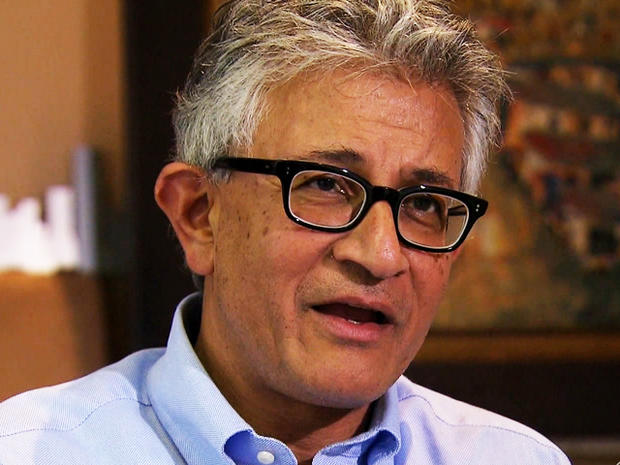
Mohammed Valli Moosa is from South Africa. In 1999, he became the Minister of the Environment and Tourism department of South Africa. As he served this position, he worked to raise the awareness on the problem of single-use plastics. He even coined plastic shopping bags as the “national flower” and pushed to introduce a minimum legal thickness of 30 micrometres to increase their cost, reusability, and recyclability. He was elected President of IUCN — the World Conservation Union at the 3rd World Conservation Congress in Bangkok in November 2004. He was also non-executive Chairman of Eskom and Sun International.
Dr. Ebrahim Samba
Dr. Ebrahim Samba faced unique challenges in health, the environment and agriculture that demand African solutions. He became the Regional Director World Health Organization of West Africa. For many years, the richest farmland in West Africa was idle because of the threat of river blindness or Onchocerciasis.
In the beginning of 1980, Dr. Samba led a team of 800 scientists, physicians and pilots, whom 97% were African through the World Health Organization’s Onchocerciasis Control Programme, where he and his team successfully eliminated river blindness from an 11-country region. Due to its success, the repopulation of large fertile areas of land was made possible, thus having a decisive impact on the socio-economic situation of the participating countries. In 1992, he was awarded with the Africa Prize
Dr. Bernard Ouédraogo

Dr. Bernard Ouédraogo is the founder of the Naam movement of Burkina Faso, Africa’s largest and most prominent grassroots movement for self-reliance. He motivated many small-scale farmers in the dry Sahel region of West Africa to take charge of their own development. The mobilizing action at the grassroots led by Dr. Ouédraogo was recognized by the Africa Prize. He was honoured by The Hunger Project in 1989. He also participated in the first-ever meeting of Africa Prize laureates, which led to the expansion of The Hunger Project, initially in West Africa and now across the continent.
Why men should care for the environment and push for changes?
There is a long list of male changemakers when it comes to environmental protection. However, while more communities have male leaders, activists, and advocates promoting the environmental cause and gearing toward sustainable living, there are still a lot of things need to be done specially by men when it comes to advancement for environmental protection. There must be a diverse and vibrant participation of men coming from different backgrounds such as race, religion, economic status and age.
The creation and improvement of policy, products and services that would cater both sexes is inevitably important. The necessity to come up with a powerful and alternative narrative for men must be reinforcing to be able to encourage and empower more men from different backgrounds and walks of life to join the cause. Because men are part of the problem as equally part of the solution, and can play crucial roles in sustaining eco-friendly initiatives.
In the end, the task to care for the environment is not assigned to a singular gender, religion, age or group. To be steward of the Earth is the task of all. It is a commitment not only to the future generations but to the present and to those who came before us.

